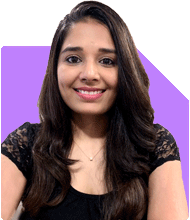Is health insurance important at 60 with 8 Cr in investments and settled children?
Ramalingam Kalirajan |7776 Answers |Ask -Follow
Mutual Funds, Financial Planning Expert - Answered on Feb 03, 2025
He has an MBA in finance from the University of Madras and is a certified financial planner.
He is the director and chief financial planner at Holistic Investment, a Chennai-based firm that offers financial planning and wealth management advice.... more

I am 60 years old, retired and have my own house . Have a corpus of around 5 Cr in Stocks / MF’s & 3 Cr in FD’s. Children have settled down with no commitments and have an monthly expenses of 1 lakh. We do not have a health insurance and is it required to be taken?
You own a house and have no commitments towards children.
You have a corpus of Rs 5 crore in stocks and mutual funds.
You also have Rs 3 crore in fixed deposits.
Your monthly expenses are Rs 1 lakh.
You do not have health insurance.
Your financial position is strong. You have created a good retirement corpus. Your assets can support your lifestyle. However, some gaps need attention. A structured approach can optimise your wealth for long-term security.
Health Insurance – Is It Required?
Yes, health insurance is necessary at this stage.
Medical costs are rising fast in India. A single hospitalisation can cost Rs 5-10 lakh.
Your existing corpus can cover expenses, but using health insurance is smarter.
Having health insurance ensures that your wealth remains intact.
At 60, getting a policy may be expensive, but it is still worth taking.
Opting for a comprehensive policy with lifelong renewability is advisable.
A policy with Rs 10-20 lakh cover per person is a good option.
Super top-up plans can provide additional coverage at a lower cost.
Some insurers offer special plans for senior citizens.
Take a plan that covers critical illnesses, daycare procedures, and home treatments.
A cashless claim facility makes hospitalisation easier.
Buying health insurance now ensures that future treatments are covered.
If you delay, premiums will increase, and pre-existing conditions may be excluded.
Managing Your Rs 5 Crore Stock & Mutual Fund Portfolio
Your investments in stocks and mutual funds need regular monitoring.
The stock market is volatile. Your portfolio must match your risk tolerance.
You need a mix of equity and debt for stable returns.
At 60, reducing direct stock exposure is advisable.
Actively managed funds with experienced fund managers are a better choice.
Mutual funds provide diversification and professional management.
Regularly rebalance your portfolio to maintain asset allocation.
Avoid sector-specific funds as they are risky.
A portion of your portfolio should generate regular income.
Dividend-paying stocks or mutual funds can provide passive cash flow.
Consider moving a portion to conservative hybrid funds.
Keep some allocation in high-quality corporate bond funds for stability.
Managing Your Rs 3 Crore Fixed Deposit
Fixed deposits provide safety but have lower returns.
Interest income from FDs is taxable. This reduces your effective returns.
Consider splitting FD investments to optimise interest earnings.
Senior citizen schemes offer better returns than regular FDs.
Some banks offer special rates for senior citizens.
Floating rate fixed deposits adjust to changing interest rates.
Avoid investing the entire amount in long-term FDs.
Laddering FDs with different maturities provides liquidity and flexibility.
Part of this amount can be moved to safer debt mutual funds.
Debt mutual funds provide better post-tax returns compared to FDs.
Monthly income plans in mutual funds can provide tax-efficient cash flow.
Generating a Stable Retirement Income
Your total corpus is Rs 8 crore. This is sufficient for your lifestyle.
A systematic withdrawal plan (SWP) from mutual funds can provide steady income.
SWPs are tax-efficient compared to FD interest.
Dividend-paying mutual funds can supplement your income.
Having 3-5 years' worth of expenses in liquid assets is advisable.
Debt instruments like government bonds can provide safe income.
Do not withdraw large amounts unnecessarily. This ensures your money lasts longer.
Monitor expenses and adjust withdrawals based on inflation.
Inflation & Its Impact on Your Corpus
Inflation erodes the value of money over time.
Your monthly expense of Rs 1 lakh will rise in the future.
Medical costs increase faster than general inflation.
Your investments should outpace inflation.
A mix of equity and debt ensures long-term wealth growth.
Keeping too much in FDs will not protect against inflation.
Your portfolio should have some equity exposure for capital appreciation.
Emergency Fund & Liquidity Planning
Always keep at least 6-12 months of expenses in liquid form.
Liquid mutual funds or short-term FDs are good options.
Do not rely entirely on stocks for liquidity.
Medical emergencies or sudden expenses require quick access to funds.
Maintain a separate emergency corpus outside your main investments.
Tax Planning for a Retired Person
Interest from FDs is taxable at your income slab rate.
SWP from mutual funds is tax-efficient as only the gains are taxed.
Invest in tax-free instruments like senior citizen saving schemes.
Ensure that your income is structured to minimise tax liability.
Tax-efficient withdrawals help in preserving wealth.
Keep track of changes in tax laws affecting senior citizens.
Estate Planning – Securing Your Legacy
Having a will ensures that your wealth is distributed as per your wishes.
Nominate family members in all investments and bank accounts.
Consider creating a trust for smooth inheritance planning.
If required, consult an expert for legal documentation.
Estate planning prevents future disputes and ensures peace of mind.
Avoiding Common Financial Mistakes in Retirement
Do not invest in risky or speculative schemes.
Avoid giving large sums of money to relatives without a financial plan.
Do not keep all your funds in FDs due to low post-tax returns.
Do not ignore inflation while planning expenses.
Avoid depending entirely on stocks for wealth preservation.
Keep financial records updated and accessible to trusted family members.
Review your financial plan yearly and make necessary adjustments.
Finally
You have done well in building a strong financial corpus.
Some adjustments can enhance security and efficiency.
Buying health insurance is a priority at this stage.
Optimising your investment portfolio can ensure better returns.
Creating a tax-efficient income strategy will protect your wealth.
A proper estate plan ensures that your legacy is well managed.
Regular financial reviews will help in staying on track.
Implementing these strategies will give you financial peace of mind.
Best Regards,
K. Ramalingam, MBA, CFP,
Chief Financial Planner,
www.holisticinvestment.in
https://www.youtube.com/@HolisticInvestment
You may like to see similar questions and answers below
Ramalingam Kalirajan |7776 Answers |Ask -Follow
Mutual Funds, Financial Planning Expert - Answered on Jun 25, 2024
Ramalingam Kalirajan |7776 Answers |Ask -Follow
Mutual Funds, Financial Planning Expert - Answered on Jun 27, 2024
Ramalingam Kalirajan |7776 Answers |Ask -Follow
Mutual Funds, Financial Planning Expert - Answered on Oct 22, 2024
Milind Vadjikar |959 Answers |Ask -Follow
Insurance, Stocks, MF, PF Expert - Answered on Jan 29, 2025
Mayank Chandel |1985 Answers |Ask -Follow
IIT-JEE, NEET-UG, SAT, CLAT, CA, CS Exam Expert - Answered on Feb 03, 2025
Samraat Jadhav |2191 Answers |Ask -Follow
Stock Market Expert - Answered on Feb 03, 2025
Samraat Jadhav |2191 Answers |Ask -Follow
Stock Market Expert - Answered on Feb 03, 2025
Ramalingam Kalirajan |7776 Answers |Ask -Follow
Mutual Funds, Financial Planning Expert - Answered on Feb 03, 2025
Ramalingam Kalirajan |7776 Answers |Ask -Follow
Mutual Funds, Financial Planning Expert - Answered on Feb 03, 2025
Ramalingam Kalirajan |7776 Answers |Ask -Follow
Mutual Funds, Financial Planning Expert - Answered on Feb 03, 2025
Ravi Mittal |519 Answers |Ask -Follow
Dating, Relationships Expert - Answered on Feb 03, 2025
Niharikka Budhwani |12 Answers |Ask -Follow
Dietician, Lifestyle, Nutrition Expert - Answered on Feb 03, 2025
Sushil Sukhwani |582 Answers |Ask -Follow
Study Abroad Expert - Answered on Feb 03, 2025
Sushil Sukhwani |582 Answers |Ask -Follow
Study Abroad Expert - Answered on Feb 03, 2025



























